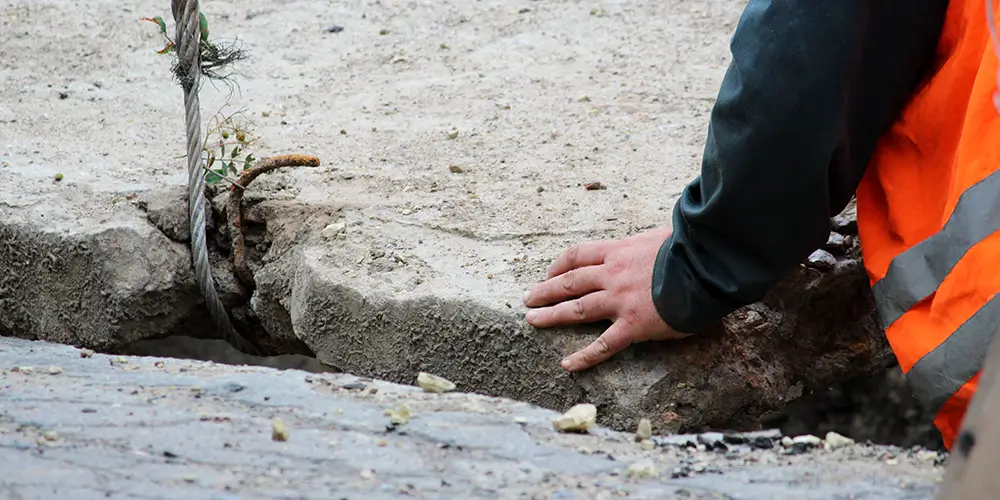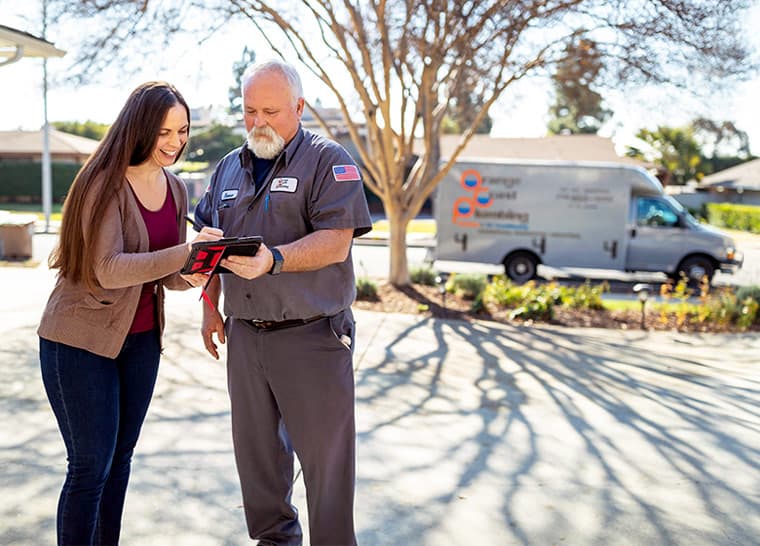Most homeowners have never heard of a slab leak until a slab leak wrecks their home.
How scary are slab leaks?
Very, if you value your home and property. We should be telling spooky tales of slab leaks around the campfire.
How dangerous are they? Not as immediately hazardous as a gas leak or electrical short circuit, but they pose a considerable risk to health and property. Ranking plumbing disasters on a scale of 1 to 10, a slab leak has the potential to reach 11.
Slab Leaks Are a California Problem
Most homes back East and in the Midwestern USA have basements. Plumbing runs through the basement beams and supports, usually exposed. It’s easy to reach; any corrosion is easy to spot.
Not so in Orange County, most of California, and even states like Arizona.
Homes are built on concrete slabs — there’s no basement for the pool table or man cave. Pipes run through and under this concrete foundation, entirely out of sight and mind until something goes wrong.
That “something” is a slab leak in, under, or around your home’s foundation.
What Causes a Slab Leak?
Pipe corrosion and weak plumbing joints cause most slab leaks.
Pressure builds within the pipe, finds a vulnerable point or two, and forces water seepage into the concrete foundation. This can go on for weeks undetected until the pipe bursts. Then one day, you return home to Noah’s Flood, Part 2.
Other causes of slab leaks include:
- Shifting or settling soil around the foundation;
- Poor construction or installation;
- Tree roots;
- Faulty pipe connections; and
- Earthquakes or ground movement from construction.
Why Slab Leaks Are Difficult to Detect
- Pipes under and around a home’s foundation are out of sight, making them hard to inspect for corrosion or weakness.
- Slab leaks can be slow-moving. You may see an increase in your water bill, but otherwise, there may be little indication of anything wrong.
- Some homeowners are unaware that water pipes run through their foundation.
Unfortunately, a slab leak may be discovered only after it has caused significant (and expensive) damage to property.
It’s just one of the reasons why it pays to have a certified plumber check water and drainage systems every couple of years.
What Makes a Slab Leak Dangerous?
Slab leaks threaten health because they create the perfect conditions for mold growth.
And they’re a threat to property because of the damage they can do to flooring, furnishings, walls, and the structural integrity of a building.
Danger #1: Black Mold Growth
Mold needs three things to survive: moisture, food (anything organic like wood or carpeting), and a warm environment.
Slab leaks provide 5-star accommodations for mold spore guests. The water soaks into carpets, flooring, and walls — all the perfect places for black mold to take hold.
Mold spreads fast, leaving a trail of misery. Respiratory issues, headaches, and even permanent lung damage are among its gifts to humans. Children and the elderly are most vulnerable to mold exposure.
Mold removal is usually the most time-consuming portion of a slab leak repair, often spanning several weeks.
Danger #2: Structural & Property Damage
Water seeping into a foundation causes shifting or settling. In some cases, a slab leak can damage a home irreparably, eroding its foundation and undermining its integrity. Walls crack and buckle.
Most slab leak repairs are almost industrial operations involving multiple contractors.
- An experienced plumber must locate the slab leak(s) and patch or replace pipe sections beneath the concrete foundation.
- Next, a mold specialist identifies mold growth and does the necessary remediation.
- Finally, a contractor may perform structural repairs — or even complete renovation of the affected area.
Repair costs can add up quickly; worse, the property may be condemned if the leak goes unchecked for too long.
Danger #3: Slab Leaks & Electricity
Water seeping underneath a concrete foundation can come in contact with electrical cables and wires. This is particularly dangerous if water is flowing close to live circuits with high voltage and current.
Take immediate action when this occurs — otherwise, you could face costly repairs for plumbing and electrical systems, or even be at risk of electrocution.
The Bottom Line on Slab Leaks
What’s the best way to protect your home against slab leak damage?
- Schedule periodic plumbing inspections. Plumbers can identify weak points in pipes and recommend the best action.
- Reline or replace corroded pipes — an expensive process but much cheaper than recovery from a slab leak.
- Read your home insurance policy carefully to ensure you’re covered for slab leaks. Otherwise, you may learn too late that you’re paying out of pocket the mother of all plumbing disasters.
FAQs: The Dangers of Slab Leaks
Q: How can I tell if I have a slab leak in my home?
Signs of a slab leak may include unusually high water bills, the sound of running water when no fixtures are in use, water pooling on the floor, damp carpets, or a sudden increase in mold growth.
Q: What immediate actions should I take if I suspect a slab leak?
Shut off your home’s main water supply to prevent further flooding. Next, contact a qualified plumber to assess the situation and locate the source of the leak. Avoid using electrical devices in affected areas until a professional assessment is conducted.
Q: How do professionals detect slab leaks?
Specialized equipment like acoustic listening devices, infrared cameras, and moisture meters can locate slab leaks without invasive procedures. These tools can detect sound variations or temperature changes caused by leaking water.
Q: Can a smart water leak detector identify a slab leak?
Smart water leak detectors can identify areas with abnormal water usage, but they can’t pinpoint the exact location of a slab leak. To address the issue, professional inspection and repair are necessary.
Q: How long can a slab leak go unnoticed?
A slab leak can go undetected for weeks or even months, depending on its visibility, water pressure levels, and the amount of damage it causes. Regular inspections can help catch leaks before they become severe.
Q: Is it necessary to vacate my home during slab leak repairs?
Depending on the severity of the leak and the extent of the repairs, you may have to relocate temporarily. A qualified professional can assess the situation and advise on the best course of action.
Q: How can I prevent slab leaks from occurring?
Preventive measures include maintaining proper drainage systems, ensuring that landscaping directs water away from the foundation, and regularly inspecting water pipes for signs of corrosion or wear.
Q: Will my homeowner’s insurance cover damage from a slab leak?
A: Coverage varies by policy. Consult with your insurance provider for details on your coverage limits and exclusions.


